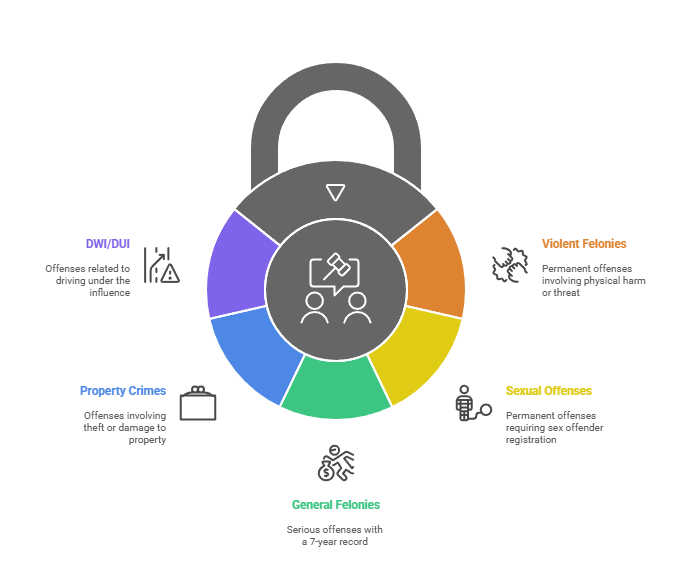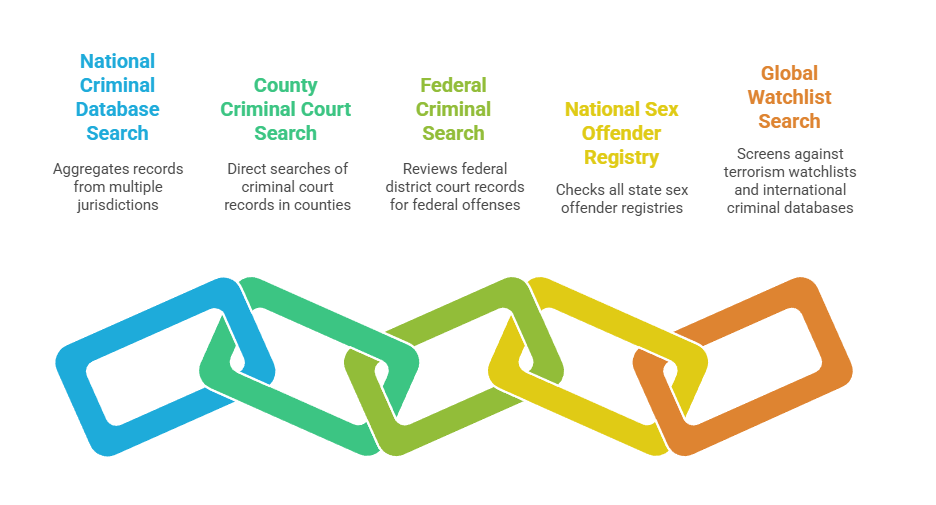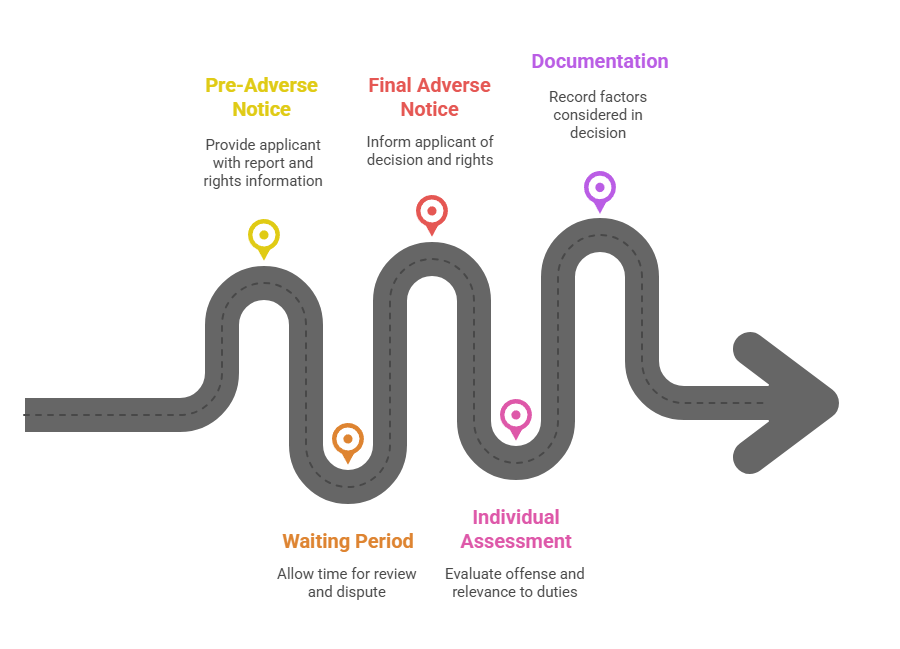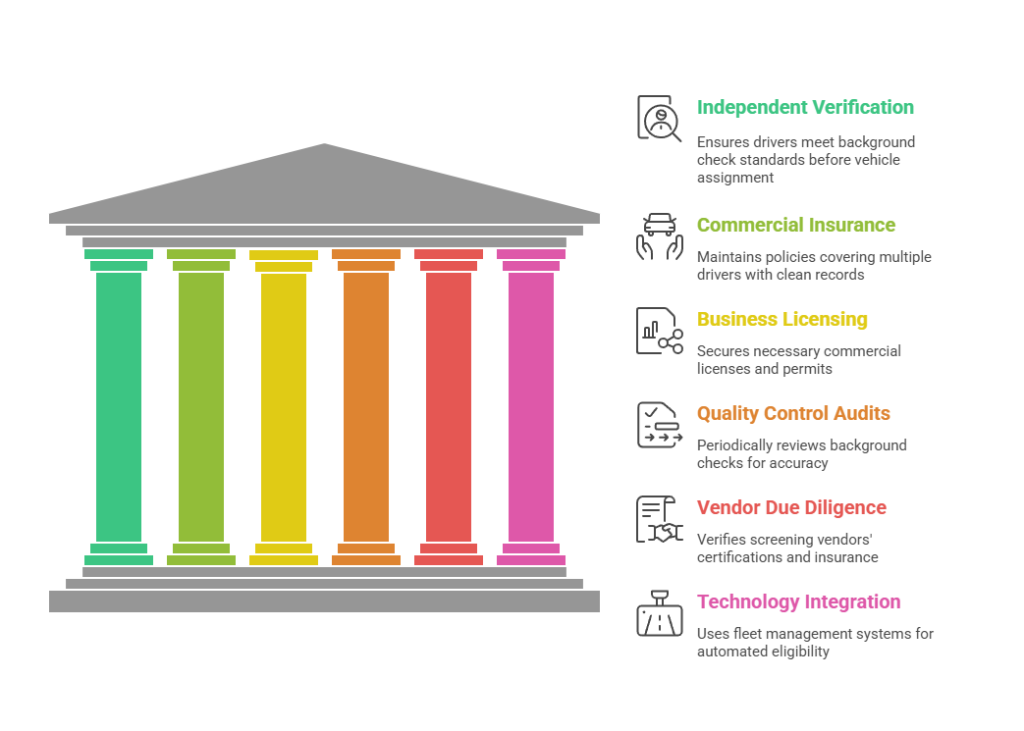Texas rideshare background checks operate under a dual regulatory framework where Transportation Network Companies (TNCs) must comply with both state-mandated screening requirements under Texas Transportation Code Chapter 2402 and city-specific ordinances that may impose additional restrictions. Understanding the precise disqualifying offenses, processing timelines, and jurisdictional differences—particularly Austin's unique requirements—is essential for fleet managers and rideshare companies to maintain compliance while efficiently onboarding qualified drivers.
Key Takeaways
- Texas state law requires rideshare companies to conduct national criminal background checks and driving record reviews covering at least seven years of history.
- Disqualifying offenses include DWI convictions within seven years, any felony conviction within seven years, violent crimes, sexual offenses, and specific driving violations.
- Austin maintains additional local requirements that differ from state law, including municipal permit obligations and expanded screening criteria.
- Background check turnaround times typically range from 3-5 business days for standard screenings to 10-14 days for comprehensive reviews.
- Fleet operators must use FCRA-compliant Consumer Reporting Agencies and provide proper adverse action notices when denying based on background check results.
- Annual driver record monitoring is required to ensure ongoing compliance throughout a driver's tenure with the platform.
- Texas law prohibits discrimination based on arrest records without convictions, requiring companies to evaluate convictions individually.
- Both individual drivers and fleet managers bear responsibility for maintaining accurate documentation and reporting changes in criminal or driving history.
Understanding Texas Rideshare Background Check Requirements
Texas established comprehensive statewide regulations for Transportation Network Companies in 2017. This created a uniform framework that superseded most local ordinances while preserving certain municipal authority. The Texas rideshare background check process differs significantly from traditional employment screenings due to specific statutory requirements.
State-Level Requirements Under Texas Law
The Texas Transportation Code Chapter 2402 establishes mandatory background check standards for all TNCs operating within the state. Companies must conduct or contract for local, state, and national criminal background checks. They must also obtain driving history reports from the Texas Department of Public Safety and equivalent agencies in other states where applicants held licenses.
These screenings must cover a minimum seven-year lookback period for criminal history and a three-year period for driving records. The state framework requires TNCs to verify that applicants possess valid driver's licenses, current vehicle registration, and appropriate automobile insurance meeting Texas minimum coverage requirements.
City-Specific Regulations and Austin's Unique Requirements
Austin represents the most notable exception to Texas's preemption of local rideshare regulations. The city requires rideshare drivers to obtain a Chauffeur's Permit through the Austin Transportation Department. This involves fingerprint-based background checks conducted by the Austin Police Department, creating a dual-screening requirement.
The Austin permit process adds 2-3 weeks to driver onboarding timelines and costs approximately $65-$85 in municipal fees. Other major Texas cities including Houston, Dallas, San Antonio, and Fort Worth currently operate under the state framework without additional local permit requirements.
Disqualifying Offenses and Criminal History Criteria
Texas rideshare regulations specify particular criminal convictions and driving violations that permanently or temporarily disqualify individuals from driving for TNCs. The state's approach focuses on offenses directly related to passenger safety, distinguishing between violent crimes, property offenses, and regulatory violations.
Criminal Convictions That Prohibit Rideshare Driving
Texas law permanently disqualifies individuals with convictions for violent felonies, sexual offenses, acts of terrorism, and human trafficking regardless of how long ago the conviction occurred. Seven-year disqualifying offenses include any felony conviction, crimes involving property damage or theft, fraud-related offenses, and drug-related crimes. The following categories outline the specific disqualification periods:

- Violent Felonies (Permanent): Murder, aggravated assault, kidnapping, robbery
- Sexual Offenses (Permanent): Any offense requiring sex offender registration
- General Felonies (7 years): Burglary, drug distribution, felony theft
- Property Crimes (7 years): Criminal mischief, fraud, identity theft
- DWI/DUI (7 years): Driving while intoxicated, operating under influence
Companies must evaluate convictions individually, considering the nature of the offense, time elapsed, and evidence of rehabilitation. The FCRA requires employers to assess whether criminal history bears a direct relationship to rideshare driving duties.
Driving Record Violations and Motor Vehicle History
The Texas rideshare background check process scrutinizes driving records for patterns of unsafe operation. Disqualifying violations within the past three years include driving with a suspended or revoked license, reckless driving convictions, fleeing police officers, and any violation resulting in a fatal accident. Accumulating four or more moving violations within a 12-month period creates a rebuttable presumption of ineligibility.
TNCs examine license status and verification of appropriate license class for passenger transport. Out-of-state driving records present particular challenges, as Texas law requires companies to obtain driving history from all states where an applicant held a license during the lookback period.
The Texas Rideshare Background Check Process

The background screening workflow for rideshare drivers involves multiple verification stages, database searches, and compliance checkpoints. These typically span 3-14 business days depending on complexity. Fleet managers must coordinate between Consumer Reporting Agencies, state licensing authorities, and internal compliance teams.
Initial Application and Identity Verification
Driver applications begin with identity verification using government-issued identification, Social Security number validation, and address history confirmation. TNCs or their screening vendors verify that provided information matches records maintained by the Social Security Administration and state identification databases.
The Fair Credit Reporting Act mandates that companies obtain written authorization before conducting background checks. This consent must be provided on a standalone document separate from the employment application. Companies must also provide applicants with a Summary of Rights document explaining FCRA protections.
Criminal Background Search Components
Comprehensive Texas rideshare background checks incorporate multiple database searches to identify disqualifying criminal history. Each component serves a specific purpose in verifying applicant safety. The following searches work together to provide comprehensive criminal history coverage:

- National Criminal Database Search: Aggregates records from multiple jurisdictions requiring county-level verification
- County Criminal Court Search: Direct searches of criminal court records in all counties where the applicant lived or worked
- Federal Criminal Search: Reviews federal district court records for federal offenses not captured in state databases
- National Sex Offender Registry: Checks all state sex offender registries to identify individuals required to register
- Global Watchlist Search: Screens against terrorism watchlists and international criminal databases
County-level criminal searches provide the most reliable conviction records but require 2-4 business days per jurisdiction. Many Texas counties now offer electronic record access, but some smaller jurisdictions still require manual courthouse searches.
Driving Record Review and Adjudication
The Texas Department of Public Safety maintains the official driving record database for all Texas-licensed drivers. TNCs access these records through authorized screening agencies. The three-year certified driving record includes all moving violations, license suspensions, DWI convictions, and accident reports.
| Background Check Stage | Typical Timeline | Primary Delay Factors |
| Identity Verification | 1-2 hours | SSN validation issues, name discrepancies |
| National Database Search | 1-2 business days | Database update lag, common name searches |
| County Criminal Searches | 3-7 business days | Court accessibility, multi-county requirements |
| Texas Driving Record | 1-2 business days | DPS processing volume, license verification issues |
| Out-of-State Driving Records | 5-14 business days | State agency responsiveness, manual processing |
| Adjudication & Decision | 1-3 business days | Complex record interpretation, pending charges |
Once all background check components return results, compliance specialists evaluate findings against the company's eligibility criteria. Companies must provide pre-adverse action notices when background check findings may result in application denial, giving applicants 5-7 business days to review and dispute inaccuracies.
FCRA Compliance and Legal Requirements
Transportation Network Companies conducting background checks function as employers under the Fair Credit Reporting Act. This triggers specific disclosure, authorization, and adverse action requirements. Non-compliance with FCRA provisions exposes companies to statutory damages of $100-$1,000 per violation and attorney's fees in successful plaintiff actions.
Pre-Screen Disclosures and Authorization Requirements
Before obtaining any background check report, companies must provide applicants with a clear written disclosure. This disclosure must appear as a standalone document in a font size no smaller than 12-point type. It should be written in plain language appropriate for the applicant's primary language.
Applicants must provide written authorization expressly permitting the company to obtain background check reports. Electronic signatures satisfy this requirement if the system captures clear consent. Companies should retain these authorization documents for at least five years.
Adverse Action Procedures and Individual Assessment
When background check findings may result in denying an applicant, companies must follow a two-step adverse action process that protects applicant rights. Understanding each step ensures fleet managers implement legally compliant procedures:

- Pre-Adverse Action Notice: Must include a copy of the consumer report, Summary of Rights under FCRA, and CRA contact information
- Waiting Period: Companies must allow 5-7 business days for applicants to review, dispute inaccuracies, or provide context
- Final Adverse Action Notice: Informs the applicant of the decision and dispute rights
- Individual Assessment: EEOC guidance requires evaluating offense nature, time elapsed, and relationship to driving duties
- Documentation Requirements: Fleet managers must document factors considered in each adverse decision
Texas does not have a statewide ban-the-box law. However, implementing individualized assessments protects companies from discrimination claims and ensures qualified applicants receive fair consideration.
Processing Times and Efficiency Strategies
Background check duration significantly impacts driver supply availability and fleet scaling capacity. Standard Texas rideshare background checks complete within 3-5 business days when applicants have lived in a single jurisdiction. Timeline extensions occur when applicants have resided in multiple states or possess common names requiring additional verification.
The most significant timeline variable involves multi-state driving record requests. While Texas DPS records typically return within 24-48 hours, states like California and New York may require 7-14 business days. Fleet managers can mitigate delays by using screening providers with established relationships with all state licensing authorities.
Fleet operations onboarding 50+ drivers monthly should implement dedicated applicant support teams to address information discrepancies immediately. Pre-screening tools that validate Social Security numbers and confirm license validity before formal background checks can eliminate 20-30% of applications that would ultimately fail. Companies can negotiate service-level agreements with Consumer Reporting Agencies that guarantee specific turnaround times.
Ongoing Monitoring and Annual Review Requirements
Texas rideshare compliance extends beyond initial hire screening to encompass continuous monitoring. Annual driving record reviews are legally mandated, while periodic criminal record monitoring represents a best practice. Fleet managers must establish systematic review processes that identify newly ineligible drivers promptly.
Annual Driving Record and Continuous Criminal Monitoring
Texas Transportation Code requires TNCs to obtain updated driving records at least annually for all active drivers. These reviews check for new moving violations, license suspensions, DWI convictions, or accident reports. When annual reviews identify disqualifying violations, companies must immediately suspend the driver's account and initiate adverse action procedures.
Most major rideshare platforms implement continuous monitoring as a risk management measure. These programs use database monitoring services that notify companies when drivers' names appear in new arrest records or conviction reports. Continuous monitoring provides faster identification of disqualifying offenses, though database lag times mean 2-6 weeks typically elapse between offense occurrence and notification.
Driver Self-Reporting Obligations
Most TNC driver agreements require drivers to self-report new criminal convictions, license suspensions, or serious traffic violations within 72 hours. These contractual obligations create an additional safety mechanism beyond company-initiated monitoring.
Fleet managers should implement driver education programs that clearly explain self-reporting requirements and provide accessible reporting mechanisms. Failure to self-report disqualifying incidents typically constitutes grounds for immediate termination based on contract violation.
Special Considerations for Fleet Operators
Rideshare fleet operators managing multiple drivers face additional compliance complexities beyond individual driver requirements. Fleet businesses must navigate business licensing requirements, maintain aggregate compliance documentation, and implement quality control systems. Understanding these operational considerations helps fleet administrators build sustainable, compliant businesses.
Fleet operators remain responsible for ensuring that all drivers satisfy TNC background check requirements, even when the TNC directly conducts screening. This shared responsibility creates potential liability for operators who onboard drivers with disqualifying offenses:

- Independent Verification: Implement systems confirming each driver completed the TNC's background check successfully before assigning vehicles
- Commercial Insurance Requirements: Maintain commercial policies covering multiple drivers, with carriers requiring clean driving records
- Business Licensing Compliance: Secure appropriate commercial licenses, vehicle fleet registrations, and business permits
- Quality Control Audits: Periodically review completed background checks to verify all required search components were accurate
- Vendor Due Diligence: Verify screening vendors maintain appropriate FCRA certifications and insurance coverage
- Technology Integration: Use fleet management systems that integrate with TNC driver status APIs for automated eligibility verification
Texas requires fleet operators to maintain business licenses and appropriate commercial insurance coverage. Insurance carriers frequently require clean driving records and may mandate periodic background check updates beyond annual reviews.
Conclusion
Texas rideshare background checks require comprehensive multi-jurisdictional screening that balances efficient driver onboarding with thorough safety verification. Fleet managers must navigate state-mandated requirements, city-specific regulations, FCRA obligations, and ongoing monitoring responsibilities. Understanding the precise disqualifying offenses and implementing systematic adverse action procedures creates operational efficiency while protecting passenger safety. As regulatory frameworks continue evolving in 2025, staying informed about legislative changes remains essential for sustainable rideshare operations.
Frequently Asked Questions
How long does a Texas rideshare background check take?
Standard Texas rideshare background checks typically take 3-5 business days for applicants with straightforward histories. Checks requiring out-of-state driving records may extend to 10-14 business days. Austin drivers requiring city Chauffeur's Permits should expect an additional 2-3 weeks for fingerprint-based municipal checks.
What disqualifies you from driving for Uber or Lyft in Texas?
Permanent disqualifications include violent felonies, sexual offenses, and human trafficking convictions. Seven-year disqualifying offenses include any felony, DWI convictions, fraud, and drug crimes. Driving record disqualifications include suspended licenses, reckless driving, four or more moving violations in 12 months, and three or more at-fault accidents in three years.
Does Texas rideshare background check include fingerprinting?
State-level Texas rideshare background checks do not require fingerprinting—they rely on name-based criminal database searches. However, Austin requires rideshare drivers to obtain Chauffeur's Permits involving fingerprint-based background checks conducted by Austin Police. This creates an exception to the statewide standard.
Can you drive for rideshare companies with a felony in Texas?
Felony convictions within seven years disqualify applicants from rideshare driving. Felonies older than seven years from conviction date or release do not automatically disqualify applicants. However, violent crimes, sexual offenses, and terrorism offenses create permanent ineligibility regardless of age.
How often do rideshare companies check driver backgrounds in Texas?
Texas law requires annual driving record reviews for all active rideshare drivers. Most major TNCs also implement continuous criminal record monitoring throughout the driver's tenure. Drivers must self-report new disqualifying incidents within 72 hours under standard platform agreements.
What happens if you fail a rideshare background check in Texas?
Companies must provide pre-adverse action notice including a copy of the report. After 5-7 business days, you receive final adverse action notice if the decision stands. You can dispute report errors with the Consumer Reporting Agency or reapply after disqualifying offenses age beyond lookback periods.
Are Texas rideshare background checks different from regular employment checks?
Texas rideshare background checks follow FCRA requirements but incorporate specific statutory requirements under Texas Transportation Code Chapter 2402. Rideshare checks mandate seven-year criminal lookbacks, three-year driving record reviews, and specific disqualifying offense categories. The independent contractor relationship also affects certain legal obligations.
Can rideshare companies in Texas see expunged or sealed records?
Texas law generally prevents disclosure of expunged records, and individuals can legally deny their existence. However, sealed records may appear in some databases. If expunged records appear on your background check, immediately dispute the information with the Consumer Reporting Agency and provide court documentation.
Additional Resources
- Texas Transportation Code Chapter 2402 - Transportation Network Companies
https://statutes.capitol.texas.gov/Docs/TN/htm/TN.2402.htm - Federal Trade Commission - Background Checks: What Employers Need to Know
https://www.ftc.gov/business-guidance/resources/background-checks-what-employers-need-know - Texas Department of Public Safety - Driver License Services
https://www.dps.texas.gov/section/driver-license - City of Austin Transportation Department - Chauffeur Permit Information
https://www.austintexas.gov/department/ground-transportation - EEOC Enforcement Guidance on the Consideration of Arrest and Conviction Records
https://www.eeoc.gov/laws/guidance/enforcement-guidance-consideration-arrest-and-conviction-records-employment
Still have questions?
Get in touch with our team today for a personalized demo and discover how our tailored volume pricing and packages can drive results for your business!
How useful was this page?*
Note: your comments are anonymous. We use them to improve the website. Do not include any personal details.
Visit our FCRA Compliance Tool or leave a message here if you need a response.
From the blog Explore the GCheck Content Hub

How Long Does a Background Check Take? A Complete 2025 Guide
13 Dec, 2023 • 14 min read
The Ultimate Background Check Guide
13 Dec, 2023 • 4 min read
The Ultimate Guide to Employment Background Checks
13 Dec, 2023 • 10 min readThe information provided in this article is for general informational and educational purposes only and should not be construed as legal advice or a substitute for consultation with qualified legal counsel. While we strive to ensure accuracy, employment screening laws and regulations—including but not limited to the Fair Credit Reporting Act (FCRA), Equal Employment Opportunity Commission (EEOC) guidelines, state and local ban-the-box laws, industry-specific requirements, and other applicable federal, state, and local statutes—are subject to frequent changes, varying interpretations, and jurisdiction-specific applications that may affect their implementation in your organization. Employers and screening decision-makers are solely responsible for ensuring their background check policies, procedures, and practices comply with all applicable laws and regulations relevant to their specific industry, location, and circumstances. We strongly recommend consulting with qualified employment law attorneys and compliance professionals before making hiring, tenant screening, or other decisions based on background check information.

